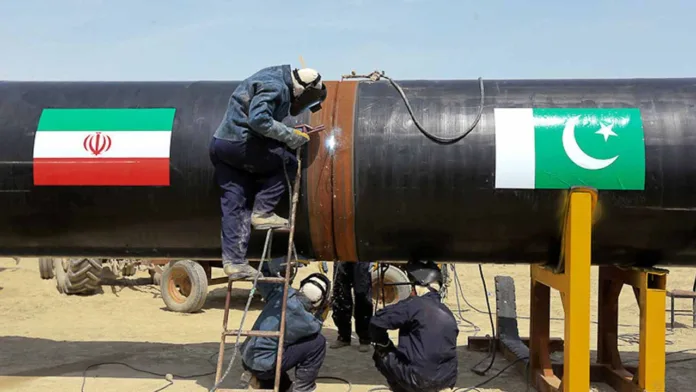Pakistan Could Face a Penalty of 18$ billion in the Iran-Pakistan Gas Pipeline Project
The Senate Standing Committee on Cabinet Secretariat has asked the Ministry of Foreign Affairs and the Attorney General for Pakistan (AGP) to explain concerns raised by the US regarding the Iran-Pakistan (IP) gas pipeline project.
A bit of history: Tehran said it finished its part of the 1,150-kilometer pipeline back in 2013, which was initially supposed to cost $7.5 billion. Pakistan had agreed to complete its side by January 2015, but in 2014, due to international sanctions, Pakistan’s petroleum minister declared the project was on hold.
Recently, former petroleum minister Musadik Malik revealed that Pakistan still wanted to honor its contract to buy gas from Iran but couldn’t because of US sanctions. (Pakistan asked the US for help with the project this year but got no response)
In August, Pakistan told Iran it couldn’t continue the project due to US sanctions, unless the US allowed it. This issue was discussed in the Senate panel meeting.
Hassan Yousafzai, the Petroleum Additional Secretary, told the committee that Iran set a 2024 deadline for the pipeline’s completion. If Pakistan doesn’t meet it, there will be fines. Pakistan is trying to negotiate with Iran and explore other ways to get gas.
Yousafzai also mentioned that Pakistan might face $20 billion in penalties. He said that extending the pipeline to Gwadar would cost $2 billion, and cancelling the deal with Iran could lead to an $18 billion penalty.
Senator Mushtaq Ahmed urged the Ministry of Foreign Affairs to explain why Pakistan can’t buy cheaper gas from Iran and find out what’s stopping the project.
Chairperson of the Senate committee, Sadia Abbasi, pointed out that India didn’t face such restrictions and questioned how the agreement was signed despite these obstacles. Senator Waqar Mehdi mentioned that the agreement was signed during ex-President Zardari’s government.
To sum it up, the Iran-Pakistan gas pipeline project has faced numerous challenges, including US sanctions and potential penalties. Pakistan is trying to negotiate and find solutions, but the project’s future remains uncertain.



